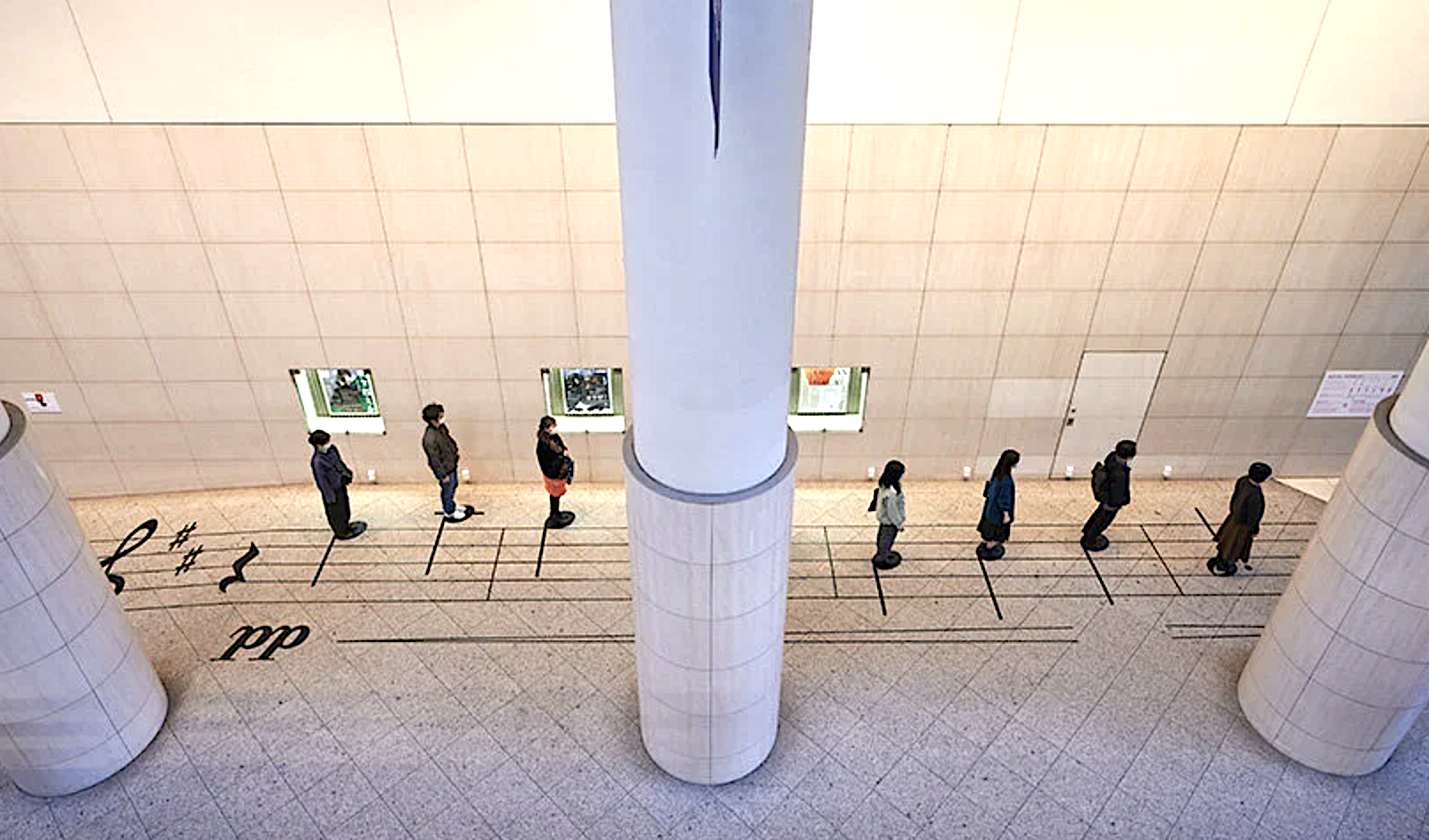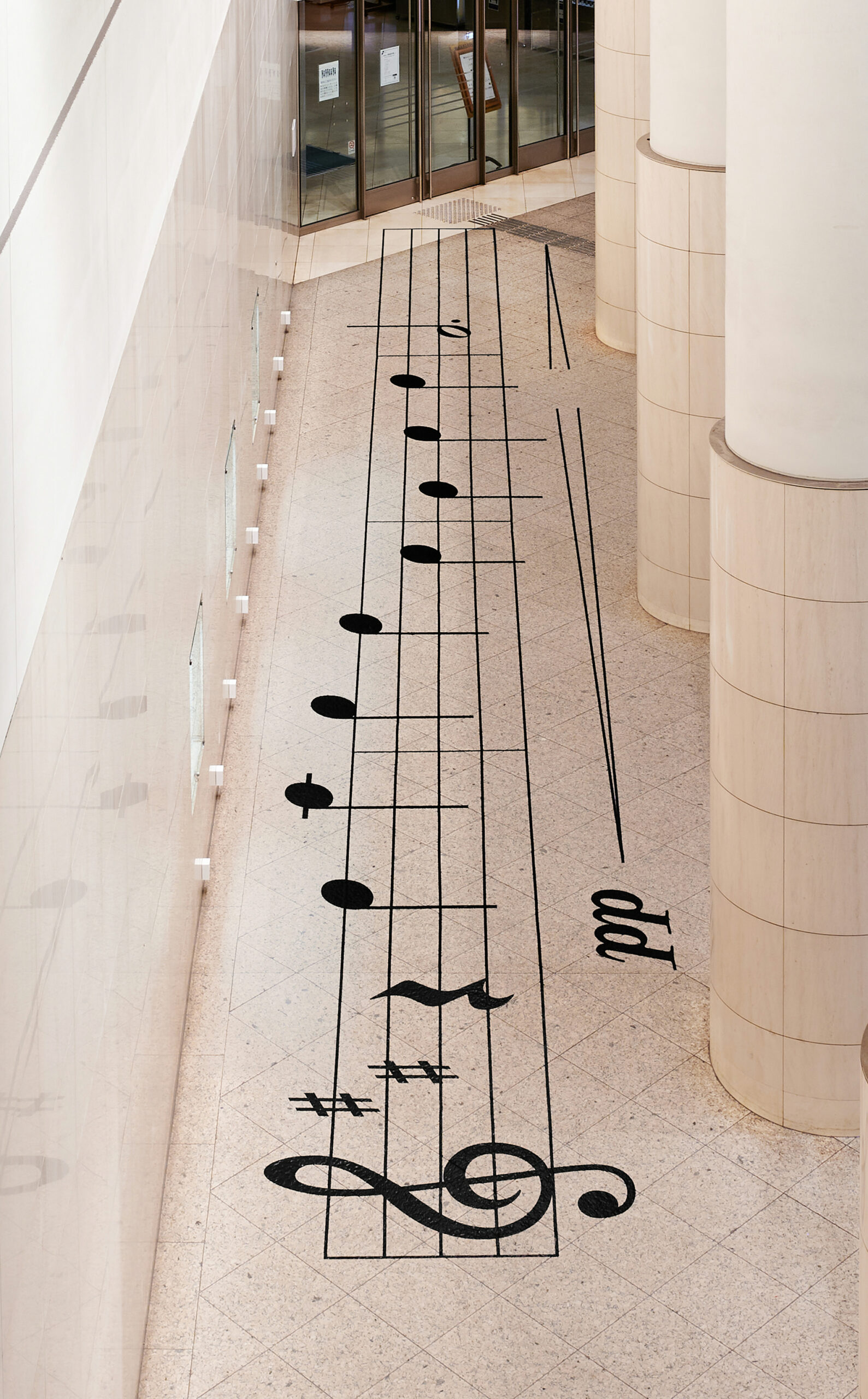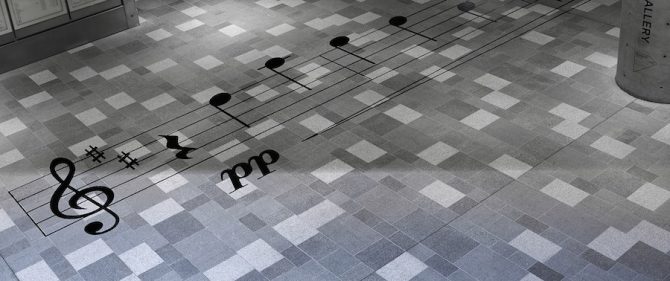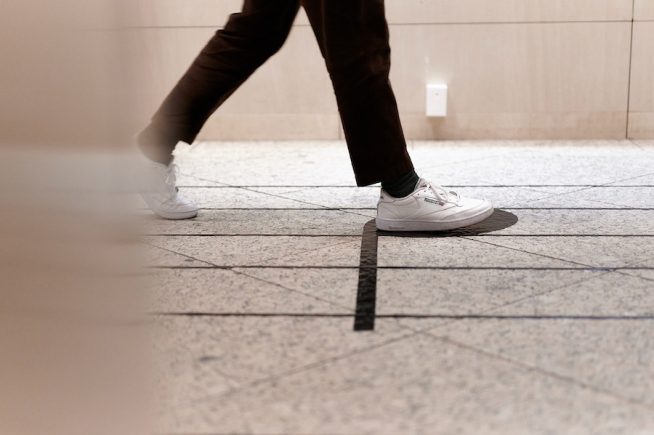
The global pandemic has revealed the depths of systematic cruelty in certain places in the world that have refused to commit resources to protecting people from the virus or refused to even acknowledge its existence. Other responses show a different way forward, one in which everyone contributes meaningfully through the principled actions of wearing masks and social distancing or the principled non-action of staying home to slow the spread.
Then there’s the critical role of art, design, and music in our survival. As we have seen—from spontaneous balcony serenades in Italy to poignant animated video poetry—the arts are no less crucial to our survival than public health. Human beings need delight, wonder, humor, mourning, and celebration, and we need to come together to experience these things, whether online or in real, if distant, life. Ideally, public health and art can work together.
Japanese designer Eisuke Tachikawa has put his skills to work doing exactly that. When cases began spiking in his country in April, Tachikawa and his design firm Nosigner made some beautifully designed, and very funny, posters to encourage social distancing as part of an initiative called Pandaid. Then they created Super Mario Brothers coin stickers to place six feet (or two meters, or one tuna) apart. In its English translation, at least, the text on Nosigner’s site is direct about their intentions: “As this continues we wanted to value-translate the social constraints of social distancing into something positive and enjoyable.”

Tachikawa and Nosigner have “developed a brand,” they announced recently, called SOCIAL HARMONY “in order to spread the culture of social distancing in a humorous way.” Their latest installation, however, does not incorporate jokes or Nintendo references. Rather it draws on one of the most popular and beloved pieces of minimalist classical music, Erik Satie’s “Gymnopédie No. 1” (proclaimed by Classic FM as “the most flat-out relaxing piece of piano music ever written”). “People stand on a large music sheet on the floor and notes are played the moment you step on them. By respecting social distances and going one note at a time, the public is able to play” Satie’s piece.

Even for such a succinct composition, this must require a rigorous amount of coordination. But it is necessary to play the notes in order: “Since the melody changes with every stop, one can create one’s own Gymnopédie No. 1, since the played melody changes with every step.” The piece was installed at the entrance hall to the Yokohama Minatomirai Hall for DESIGNART TOKYO 2020, where it will remain until the end of the year. Surely there will be other forms of “social harmony” to come from the Japanese designers. Like the practice of social distancing itself, we can only hope such projects catch on and go global, until the widespread vaccination and an end to the pandemic can bring us closer again.

via Spoon & Tamago
Related Content:
A New Digital Archive Preserves Black Lives Matter & COVID-19 Street Art
Josh Jones is a writer and musician based in Durham, NC. Follow him at @jdmagness


Where’s the video????